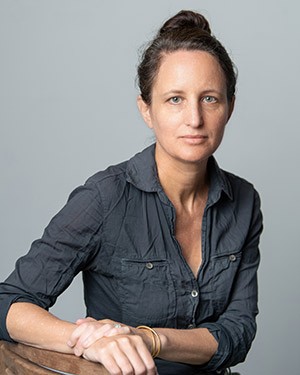Villanova University’s Lepage Center Celebrates Fifth Anniversary October 6
Noted historian Sophia Rosenfeld, PhD, of the University of Pennsylvania to offer keynote address at 7 p.m. at John and Joan Mullen Center for Performing Arts

VILLANOVA, Pa. – The past five years have seen a global pandemic, two hotly-contested US presidential elections, the rise of the Black Lives Matters movement, the appointments of four new US Supreme Court justices, wars in Afghanistan and Ukraine, increasing global warming and concern about climate change, and many more significant events that have made history. Through it all, The Albert Lepage Center for History in the Public Interest at Villanova University has served as a place for historically informed and timely conversations that further the public’s understanding of the present moment.
Since 2017, the Lepage Center—housed in the College of Liberal Arts and Sciences—has presented an annual series of both in-person and virtual events on an important issue of public interest, bringing together diverse voices in the humanities and social sciences to put contemporary events in historical perspective. The Center also offers fellowships and internships in History for undergraduate and graduate students, hosts special workshops, and supports impactful public-facing historical projects at the local, national and international levels.
To celebrate its founding, the Lepage Center invites the public to a special Fifth Anniversary Celebration on Thursday, Oct. 6 at 7 p.m. in Villanova University’s John and Joan Mullen Center for the Performing Arts. Keynote speaker Sophia Rosenfeld, PhD, Walter H. Annenberg Professor of History at the University of Pennsylvania and the 2022 Kluge Chair in Countries and Cultures of the North at the Library of Congress, will discuss "Truth, Lies, and Democracy Now: A Historian’s Reflections." A reception will follow the program. Registration is required.
“From our very beginning five years ago, the Lepage Center’s programming has been warmly supported and embraced by the local community, Villanova alumni and friends, students, faculty and staff,” says Center director Paul C. Rosier, PhD, a scholar of US and global environmental history. “We look forward to sharing this celebratory and informative evening with them.”
In addition to the Oct. 6 event, the Center has a variety of lectures and workshops planned this fall, including a lecture featuring Elizabeth Sharrow, PhD, on Wednesday, Sept. 7 at 6 p.m. on Title IX in Historical Perspective, recognizing the 50th anniversary of the law enacted in 1972. The Center’s annual, yearlong themed series will focus on “Climate Change in Historical Perspective” this 2022 – 2023 academic year, exploring the multiple dimensions of climate change denial, climate justice activism, the national security implications of climate change, the rise of climate refugees and more. The series launches Wednesday Sept. 14 from 6 to 7:15 p.m. All events are open to the public. View these and all the Lepage Center’s upcoming events.
About The Albert Lepage Center for History in the Public Interest: The Albert Lepage Center for History in the Public Interest generates historically informed conversations that further public understanding of the present moment. Founded on the belief that historical scholarship and historical perspective are essential for understanding contemporary local, national and global issues, the Center organizes diverse events and programs that gather scholars, educators, journalists, policymakers, activists and students to reflect upon the present through the lens of the past. The Lepage Center is made possible by the vision and generosity of Albert Lepage ’69 CLAS, a history major at Villanova and retired co-chairman of Lepage Bakeries Inc.
About Villanova University’s College of Liberal Arts and Sciences: Since its founding in 1842, Villanova University’s College of Liberal Arts and Sciences has cultivated knowledge, understanding and intellectual courage for a purposeful life in a challenging and changing world. With more than 40 majors across the humanities, social sciences and natural sciences, it is the oldest and largest of Villanova’s colleges, serving more than 4,500 undergraduate and graduate students each year. The College is committed to a teacher-scholar model, offering outstanding undergraduate and graduate research opportunities and a rigorous core curriculum that prepares students to become critical thinkers, strong communicators and ethical leaders with a truly global perspective.
